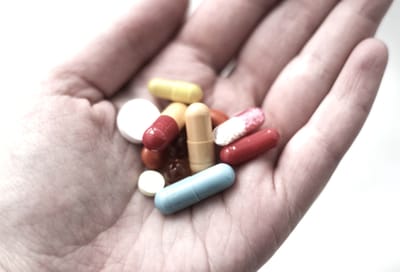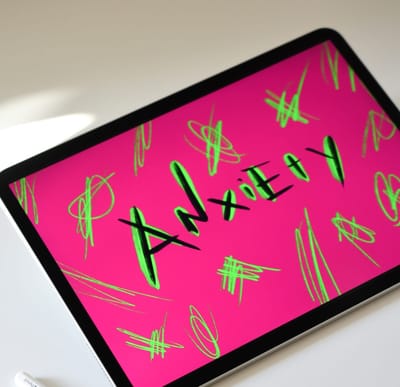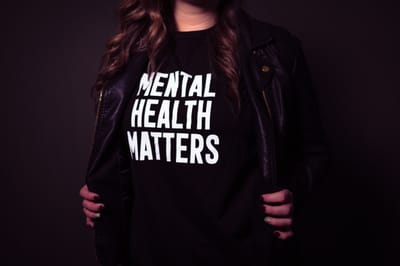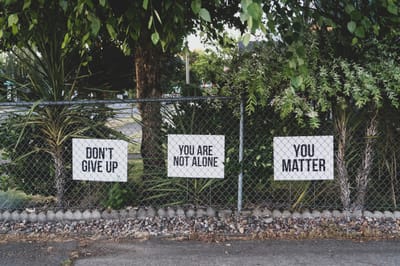AMERICAN LEGION
The American Legion is the nation’s largest veterans service organization, advocating for veterans, service members, and military families while fighting to end veteran suicide.
MENTAL HEALTH
Federal and State Resources and Professional Organizations
There are also state and federal resources designed to help you find health care providers and low-cost services. Some of the state resources include:
- Texas Health and Human Services (HHS)
hhs.texas.gov/services/mental-health-substance-use
HHS offers mental health and substance use services for families and people of all ages. - 2-1-1 Texas
Call 211 for Essential Community Services | United Way 211 - Substance Abuse and Mental Health Services Administration (SAMHSA)
www.samhsa.gov
For general information on mental health and to locate treatment services in your area, call the SAMHSA Treatment Referral Helpline at 1-800-662-HELP (4357). SAMHSA also has a Behavioral Health Treatment Locator on its website that can be searched by location. - National Alliance on Mental Illness (NAMI)
www.nami.org/home
NAMI provides advocacy, education, support and public awareness for individuals and loved ones affected by mental illness. - Mental Health America (MHA)
www.mhanational.org
MHA is a community-based nonprofit dedicated to addressing the needs of those living with mental illness and promoting the overall mental health of all Americans.
Assistance for Children, and Youth Families
- National Alliance on Mental Illness North Texas
- National Child Traumatic Stress Network – Improves access to care, treatment, and services for children and adolescents exposed to traumatic events.
- Texas System of Care – Connects communities to ensure children and youth have access to mental health services.
- City House
- Mental Health America of Greater Tarrant County
Suicide Prevention
- C-SSRS - Columbia-Suicide Severity Rating Scale – Tool that helps users identify whether someone is at risk for suicide, assess the severity and immediacy of that risk, and gauge the level of support that the person needs.
- Now Matters Now – Skills and support for coping with suicidal thoughts.
- Suicide Prevention Resource Center – Provides technical assistance, training, and materials for suicide prevention practitioners and other professionals serving people at risk for suicide.
- https://www.sccenter.org/ - Crisis can strike any time, day or night. When feelings of hopelessness, isolation, shame, and anxiety lead people to think that suicide is their only option, the can't wait for help. They need to talk to someone at our suicide and crisis hotline...now.
| FACILITY | ADDRESS | PHONE # | WEBSITE |
| DEPARMENT OF FAMILY AND PROTECTIVE SERVICES | 400 E Highway 243, #10, Canton, TX 75103 | (214)-951-7902 1-800-252-5400 | txabusehotline.org |
| LEGAL AID FOR SURVIVORS OF SEXUAL ASSULT | 4920 North I-35, Austin, TX 78751 | 1-844-303-7233 | legalaidforsurvivors.org |
| BRIGHTER TOMORROWS | 928 Bluebird Dr.Irving, TX 75061 | (972)-254-4003 (972)-262-8383 | brightertomorrows.net |
| HOMELESS-Dallas Hope Charities | Dallas Hope Charities | Instill dignity, stability, and Hope For All. |
| Operation Healthy Reunions | 624 N. Good Latimer Suite 200 Dallas, TX 75204 | 214-871-2420 ext. 110 | |
| MVPN TARRANT COUNTY | 3840 Hulen Street Fort Worth, TX 76107 | Military Veteran Peer Network - VMHD (texas.gov) | |
| My Health My Resources Tarrant County | 3840 Hulen Street Fort Worth, TX 76107 | 817-569-4300 | My Health My Resources of Tarrant County – We change lives (mhmrtarrant.org) |
| Compassionate Touch | 713-524-1971 | Compassionate Touch | Providing Short-Term Emergency Resources for Patients & Families | |
| The American Fallen Soldiers Project | 3200 Earhart Dr Carrollton, TX 75006 | 214-387-7769 | Home (americanfallensoldiers.com) |
| Carry The Load | 514 S. Hall Street Dallas, TX 75226 | 214-723-6068 | Carry The Load - Veterans Charity to Support & Honor our Heroes |
| Fort Worth Vet Center | 6620 Westworth Blvd Westworth Village Fort Worth, TX 76114 | 817-921-9095 | Fort Worth Vet Center | Veterans Affairs (va.gov) |
| MPN DALLAS | 16160 Midway Rd#218 Addison, TX 75001 | 817-239-2636 | Military Veteran Peer Network - VMHD (texas.gov) |
| Operation Open Door | 3840 Hulen Street North Tower Fort Worth, TX 76107 | 817-335-5405 | Operation Open Door | TexVet |
| Association of Persons Affected by Addiction | 3116 Martin Luther King Jr. Building Dallas, TX 75215 | 214-634-2722 | Association of Persons Affected by Addiction (recoveryiswhy.org) |
| Easterseals’ Military & Veterans Services | 1424 Hemphill Street Fort Worth, TX 76104 | 888-617-7171 | Easterseals North Texas | Military & Veteran Services |
| Catholic Charities Fort Worth Clinical Counseling | 249 West Thornhill Dr Fort Worth, TX 76115 | 817.413.3921 | Catholic Charities Fort Worth - Ending Poverty, One Family at a Time |
| SSVF | 6060 N. Central Expwy. Suite 639 Dallas, TX 75206 | 210-431-6466 ext. 117 | Location Service - Endeavors® |
| Stay The Course Veteran Services | 855 Texas Street Suite 150 Fort Worth, TX 76102 | 682-990-6242 | |
| Liberty House | 1501 E El Paso St Fort Worth, TX 76102 | 817-569-4650 | My Health My Resources of Tarrant County – We change lives (mhmrtarrant.org) |
| Legacy Cares | 4054 McKinney Ave Suite102 Dallas, TX 75204 | 214-520-6308 | Legacy Counseling Center Mental Health and Substance Abuse Treatment (legacycares.org) |
| Magdalene House | 1302 Redwood Cir Dallas, TX 75218 | 214-324-9261 | The Magdalen House | A Recovery Community for Alcoholism |
| VA North Texas Health Care System | 2201 SE Loop 820 Fort Worth, TX 76119 | 817-730-0000 | VA North Texas Health Care | Veterans Affairs |
| Recovery Resource Council | 2700 Airport Freeway Fort Worth, TX 76111 | 817.332.6329 | Enduring Families – Welcome to the Recovery Resource Council (recoverycouncil.org) |
| Vet Center Arlington | 3337 W. Pioneer Pkwy Northlake Center Pantego, TX 76013 | 817-274-0981 | Arlington Vet Center | Veterans Affairs (va.gov) |
| Steel Hope | 700 N.E. Loop 820 Suite #212 Hurst, TX 76053 | 817-689-9339 | Steel Hope |
| Heroes on Water | 214-295-4541 | Heroes on the Water | Home | |
| Dallas VA Medical Center | 4500 S. Lancaster Rd Dallas, TX 75216 | 800-849-3597 | VA North Texas Health Care | Veterans Affairs |
| Equine Connection Counseling | 4200 County Road 806 Cleburne, TX 76031 | 682-334-3784 | Equine Assisted Counseling & Psychotherapy - Equine Connection Counseling |
| Pecan Valley | 104 Pirate Dr Granbury, TX 76048 | 817-579-4489 | Veteran Services | pecanvalleycenters |
| Surmounters | 817-297-9292 | Visit the Gypsy Horses (surmounters.com) | |
| VA North Texas Health System | 4500 S. Lancaster Road Dallas, TX 75216 | 214-742-8387 | VA North Texas Health Care | Veterans Affairs |
| Hooves For Heroes | 811 Pemberton Hill Rd. Bldg . 4 Dallas, TX 75217 | 972-412-1099 | Veterans Program | Equest |
| Warrior Spirit Project | 972-765-4071 | Home - Warrior Spirit Project | |
| Pastoral Counseling Center | 4525 Lemmon Ave Suite 200 Dallas, TX 75219 | 214-526-4525 | The Center | The Center Counseling |
| Shiloh Place | PO BOX 2731 McKinney, TX 75070 | 469.534.9407 | Hope and a Future for Single Mom - Shiloh Place Mckinney |
Mental Health Resources
Mental health disorders are among the leading causes of disability worldwide. Approximately 1 in 4 people will experience a mental health issue at some point in their lives. Mental health issues significantly impact young people. Half of all mental health disorders start by the age of 14, and 75% begin by the age of 24. Mental health conditions have a significant economic impact. They result in decreased productivity, increased healthcare costs, and adverse effects on the overall quality of life for individuals and their families.The prevalence of mental health conditions among children and adolescents is increasing. Common mental disorders include depression, anxiety disorders, bipolar disorder, schizophrenia, and eating disorders. Depression is the most common mental disorder, affecting more than 264 million people globally. Suicide is a tragic outcome of many mental health conditions. It is estimated that close to 800,000 people die by suicide each year, making it the second leading cause of death among individuals aged 15-29. Suicidal thoughts and attempts are even more prevalent. Many individuals do not receive adequate treatment due to lack of awareness, stigma, and limited access to mental health services. There are substantial disparities in mental health care access between countries and within regions.
- A Community Support Guide for Alternatives to Inpatient Mental Health Treatment, September 2022– Helps people better understand mental health care in Texas. This guide provides basic information regarding the services available across the state and the organizations that can help people get connected to these resources.
- Hogg Foundation – Blogs and email digests on mental health news.
- Mental Health First Aid Training – Learn how to identify, understand, and respond to signs of mental illnesses and substance abuse disorders in your community.
- Mental Health Services Search – Find a local mental health or behavioral health authority in your area to get connected to services.
- National Alliance of Mental Illness Texas – Improves the lives of people affected by mental illness through education, support, and advocacy.
- Stigma and Mental Health
- https://namitexas.org/mentalhealthresources/
When Should You Go to a State Mental Health Program?
Few mental health providers outside of those in the public sector are able to immediately serve people who are in crisis. This makes community mental health programs like Texas’ Local Mental Health Authorities (LMHAs) the best option when you’re having a mental health crisis and need help right away. The people who answer Texas crisis lines can help determine the best response to your crisis, whether it’s assistance with obtaining inpatient treatment or setting up a first appointment with a counselor. They will also listen and offer immediate support. In Texas, LMHAs are often good options for people with one of the three diagnoses they were originally authorized to treat (schizophrenia, bipolar disorder, and major depressive disorder), especially people who have one of those diagnoses and limited financial means. It is also often easier to obtain substance use disorder services through the public mental health system than through the private sector. Texas is currently expanding its public mental health system and updating eligibility requirements to extend services to people with other conditions including anxiety or trauma-related disorders. Whether you can get services for one of these conditions currently depends on which LMHA you call and their budget at the time. Available services vary among LMHAs but typically include psychiatry, medication management, case management, psychosocial rehabilitation, skills training, and counseling. Texas typically restricts counseling by type and diagnosis; most LMHAs that offer counseling offer cognitive behavioral therapy (CBT) to people with major depressive disorder and cognitive processing therapy (CPT) to people with PTSD (note that some LMHAs still aren’t budgeted to serve people with a diagnosis of PTSD unless they also have one of the “big three” diagnoses). In general, it never hurts to call. The staff that answer the phone lines for LMHAs in Texas aren’t just familiar with their own programs, but also know about other programs in the community that can meet the needs of people who aren’t eligible for public mental health care. A phone call can provide immediate support and help you confirm that you’re ready for treatment. If you find out that you’re not eligible or that your local LMHA isn’t a good fit, you can search for free or low-cost private practice counselors on https://www.opencounseling.com/ or try https://www.betterhelp.com/get-started/?go=true&transaction_id=102521ac193637677494859d0831d7&utm_source=affiliate&utm_campaign=157&utm_medium=macOS&utm_content=&utm_term=¬_found=1&gor=start
Who Is Eligible for Public Mental Health Services in Texas?
Texas’s public mental health programs impose stricter eligibility requirements for services than programs in other states. Many public mental health programs in America restrict access to people who have serious mental health conditions that impact their ability to function and who are at risk of psychiatric hospitalization. For decades, Texas has limited access to public mental health services even further by only serving people with one of three diagnoses: schizophrenia, bipolar disorder, or major depressive disorder. Recently, a movement to expand services to a wider range of people has gained traction. In 2013, the Texas Legislature approved a policy that expands eligibility for public mental health services to people with other psychiatric diagnoses. In theory, people in Texas who have post-traumatic stress disorder (PTSD), anxiety disorders, attention-deficit disorders, and obsessive-compulsive disorder can now be admitted to public programs. However, the law only requires programs to serve this expanded range of clients when they have “sufficient resources,” and many LMHAs continue to limit services to people with one of the “big three” diagnoses. To know whether a program has expanded its eligibility requirements, area residents have to call and ask. Over time, more programs may update and expand their eligibility requirements. In addition to clinical requirements, many public mental health programs in Texas have financial eligibility requirements. To qualify for services, you usually need to have either Medicare or Medicaid or to have no insurance and limited financial means. It is important to note that not all public mental health services in Texas have income restrictions. Crisis services in each region are open to any area resident who is experiencing a mental health crisis, regardless of their diagnosis or income level.
- Mental Health Services Search – Find a local mental health or behavioral health authority in your area to get connected to services.
Mental Health and Gun Violence
The relationship between gun violence and mental health is a complex and debated topic. While it is true that some individuals with mental health conditions may be involved in acts of violence, it's essential to understand that the majority of individuals with mental illnesses are not violent, and most acts of gun violence are not committed by individuals with diagnosed mental. Here are some key points to consider:
▸ Prevalence: The vast majority of people with mental health conditions are not violent. Research consistently shows that individuals with mental illnesses are more likely to be victims of violence than perpetrators.
▸ Risk Factors: Some studies suggest that certain factors, such as substance abuse, a history of violence, or a combination of mental illness and other risk factors, may increase the risk of violent behavior. However, the presence of a mental health condition alone does not reliably predict violent behavior.
▸ Focus on Serious Mental Illness: When examining the relationship between mental health and gun violence, it is crucial to focus on severe mental illnesses such as untreated schizophrenia or psychosis, as these conditions may be associated with a slightly increased risk of violence, particularly when accompanied by substance abuse or non-adherence to treatment.
▸Access to Firearms: Studies have shown that access to firearms is a significant contributing factor to the lethality of violent acts, including homicides and suicides. Easy access to guns can exacerbate impulsive acts of violence, regardless of mental health status.
▸ Prevention and Intervention: Efforts to prevent gun violence should focus on multiple factors, including addressing systemic issues, promoting responsible gun ownership, improving mental health services and support, and implementing evidence-based violence prevention strategies.
▸ Stigma and Misconceptions: Linking mental illness to gun violence can perpetuate stigma and discourage individuals from seeking help. It is important to promote accurate information, reduce stigma, and ensure that people with mental health conditions receive appropriate support and treatment.
Mental Health and Homelessness
There is a significant connection between mental illness and homelessness. Mental illness can be both a contributing factor to homelessness and a consequence of being homeless. Here are some key points to understand the relationship:
- Prevalence: People experiencing homelessness are disproportionately affected by mental health conditions. Studies consistently show higher rates of mental illness among homeless individuals compared to the general population. Common mental health issues among the homeless include depression, anxiety disorders, substance abuse disorders, and psychotic disorders.
- Contributing Factors: Mental illness can be a contributing factor to homelessness. Individuals with untreated or inadequately treated mental health conditions may face challenges in maintaining stable housing, employment, and social relationships. Mental illness can impact a person's ability to secure and maintain housing, manage finances, and access necessary support systems.
- Trauma and Stress: Homelessness itself can lead to the development or exacerbation of mental health issues. The experience of homelessness is often marked by trauma, extreme stress, social isolation, and exposure to violence. These factors can contribute to the development of mental health conditions or worsen existing ones.
- Limited Access to Mental Health Services: Homeless individuals often face barriers in accessing mental health services. Factors such as lack of insurance, financial resources, transportation, and stable addresses can hinder their ability to receive appropriate mental health care. Homeless shelters and service providers may also have limited capacity to address mental health needs adequately.
- Vicious Cycle: Homelessness and mental illness can create a vicious cycle. Mental health issues can make it challenging to find and maintain stable housing, while homelessness exacerbates mental health problems. Without proper support and interventions, individuals may struggle to break free from this cycle.
- Supportive Housing and Mental Health Services: Providing access to stable, supportive housing coupled with mental health services has been shown to be effective in improving outcomes for homeless individuals with mental illness. This approach, known as Housing First, prioritizes providing housing as a first step towards stabilization and recovery.
Addressing the connection between mental illness and homelessness requires a comprehensive approach that includes increased access to mental health services, affordable housing options, supportive services, and community-based interventions. It is crucial to recognize that homelessness is a multifaceted issue that involves various social, economic, and structural factors, and addressing mental health needs is just one aspect of the broader solution.
Articles on Mental Health Issues
▸ COVID-19 pandemic led to increase in loneliness around the world</a><br>People around the world experienced an increase in loneliness during the COVID-19 pandemic, which, although small, could have implications for people’s long-term mental and physical health, longevity, and well-being. https://www.apa.org/news/press/releases/2022/05/covid-19-increase-loneliness
▸ Children with attention, behavior problems earn less money, have less education, poorer health as adults. Children who struggle with attention and behavior problems tend to end up earning less money, finish fewer years of school and have poorer mental and physical health as adults, compared with children who don’t show early attention and behavior problems. https://www.apa.org/news/press/releases/2023/06/children-behavior-problems-poorer-health
Social stress, problem-solving deficits contribute to suicide risk for teen girls. Teen girls who have greater difficulty effectively solving interpersonal problems when they experience social stress, and who experience more interpersonal stress in their lives, are at greater risk of suicidal behavior. https://www.apa.org/news/press/releases/2023/05/social-stress-suicide-teen-girls
Therapy sessions benefit mothers, children in homeless shelter</a><br>Short-term therapy sessions with parents and their children in homeless shelters could help improve parenting skills and reduce parental stress and children’s posttraumatic stress symptoms.
https://www.apa.org/news/press/releases/2023/05/therapy-mothers-children-homeless
More than a quarter of U.S. adults say they’re so stressed they can’t function. Concerns high around civil liberties, inflation, violence, with nearly half of adults saying they don’t feel protected by U.S. laws. https://www.apa.org/news/press/releases/2022/10/multiple-stressors-no-function
APA calls for police reforms aimed at curbing use of force, protecting marginalized populations. APA has passed a wide-ranging resolution on policing that seeks to expand training programs to include de-escalation techniques, build stronger relations with mental health service agencies, minimize targeting of people of lower socioeconomic status, and encourage officers to restrict when they use force. https://www.apa.org/news/press/releases/2022/08/police-reforms
Mental Disorders and Related Topics
- Anxiety Disorders
- Attention-Deficit/Hyperactivity Disorder (ADHD)
- Autism Spectrum Disorder (ASD)
- Bipolar Disorder
- Borderline Personality Disorder
- Depression
- Disruptive Mood Dysregulation Disorder
- Eating Disorders
- HIV/AIDS and Mental Health
- Obsessive-Compulsive Disorder (OCD)
- Post-Traumatic Stress Disorder (PTSD)
- Schizophrenia
- Substance Use and Co-Occurring Mental Disorders
- Suicide Prevention (Disponible en español)
- Traumatic Events
Suicide, Guns, and Public Health
Most efforts to prevent suicide focus on why people take their lives. But as we understand more about who attempts suicide and when and where and why it becomes increasingly clear that how a person attempts–the means they use–plays a key role in whether they live or die. “Means reduction” (reducing a suicidal person’s access to highly lethal means) is an important part of a comprehensive approach to suicide prevention. It is based on the following understandings (click on each to learn more):
- Many suicide attempts occur with little planning during a short-term crisis.
- Intent isn’t all that determines whether an attempter lives or dies; means also matter.
- 90% of attempters who survive do NOT go on to die by suicide later.
- Access to firearms is a risk factor for suicide.
- Firearms used in youth suicide usually belong to a parent.
- Reducing access to lethal means saves lives.
Firearm access can be a politically-charged topic. We welcome both gun owners and non-gun owners to this website. It is designed to introduce a non-controversial, “lethal means counseling” approach to reducing a suicidal person’s access to firearms and other lethal means. Families and friends who are concerned about someone can also help. Read more about ways to bring up storing guns off-site. Clinicians concerned about a patient should also consider addressing firearm safety with the patient, or with their family. The Harvard Injury Control Research Center is dedicated to reducing injury through training, research, intervention, evaluation, and dissemination. The Center has published hundreds of studies on injury topics ranging from motor vehicle crashes to alcohol use to youth violence and suicide. The Center is part of the Harvard School of Public Health. https://www.hsph.harvard.edu/means-matter/





